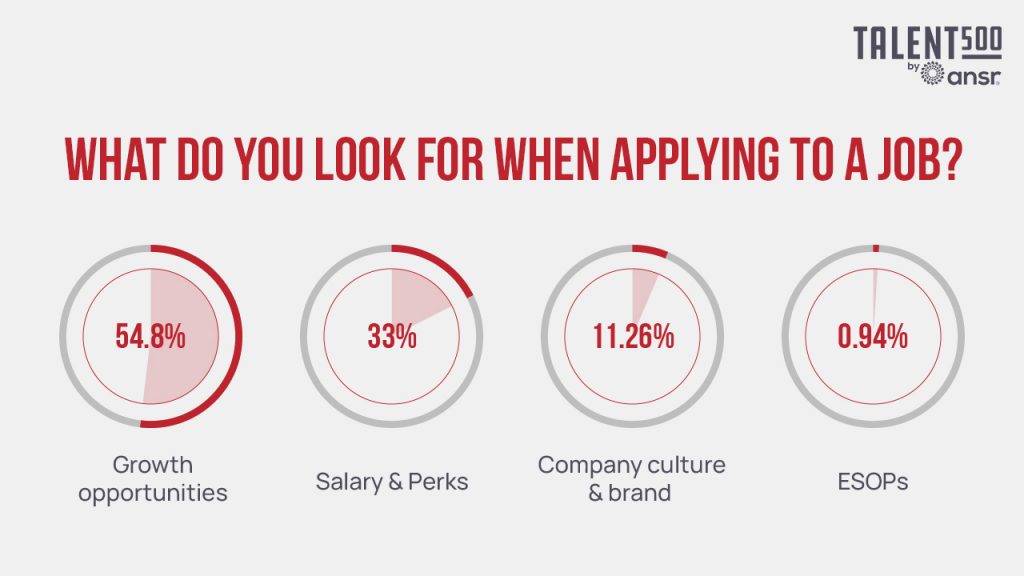As a professional with at least a few years of experience in your chosen field, you’d agree that employers are often cryptic about negotiating salary and benefits. It is for the job seeker, i.e. you, to have as much information as possible before negotiating your salary package to get the amount you deserve.
Let’s start with a quick recap of the basic components that form your salary breakup.
- Basic salary – Basic income without any deduction or increase
- Allowances – Remuneration that is paid to employees over the course of their employment, such as Home Rent Allowance, Medical Allowance, Dearness Allowance, Travel Allowance, etc.
- Gratuity – Lump-sum retirement benefit paid to employees who leave the organization after serving for five years or more.
- Professional Tax – This is levied on a salaried employee’s monthly income by the state government.
- Employee Benefits – Non-wage compensation that supplement the salary like health insurance, education assistance, training opportunities, etc.
- Employee Provident Fund – A benefit scheme mandated by the government wherein both employees and employers must make equal contributions.
A report by the Bureau of Labor Statistics indicates that up to 30% of compensation is often bundled in benefits packages. Also, a lower salary package with more benefits may be more beneficial than a higher package with minimal benefits – depending on your preferences. in a recent survey, we found that most technical professionals value career growth over other benefits and the salary package is no longer the key decision-making factor when selecting a job.
Here’s a snapshot of the survey results:

Benefits to Consider Apart From Salary When Taking Up A Job
Employee benefit packages vary according to the geographic location, employer size, and type of industry. These benefits are generally paid in addition to your allowances (like dearness allowance, conveyance allowance, HRA, etc.) and basic salary (that is the fixed amount paid prior to any deductions, bonuses or allowances). Some examples of benefits include medical insurance, disability cover, flexible working hours, paid time off, and even the bi-weekly chair massages and haircuts offered to its employees.
According to a recent survey by SCORE, 80% of workers prefer new or additional benefits to a pay increase. A report by Glassdoor also mentions that 61% of candidates seek company ratings and reviews before applying for a job.
Speaking about benefits in India, 75% of companies had retirement benefits in 2017 and there’s also an increasing emphasis on child care facilities and employee wellness programs in Indian corporates.
How Much Salary Do You Deserve?
There’s no straitjacket formula to calculate how much a company must pay you or your exact market worth. Even for the same role, your experience and the size of the company you are applying to is going to impact the compensation package.
For example, a software engineer working with a Fortune500 company is bound to earn more, especially in terms of career prospects, benefits, and work-life balance compared to some smaller firms or a startup. That’s why candidates who understand the salary structure and its components are better positioned to assess their total benefits and negotiate a better package overall. Here are some helpful tips to for negotiating a better salary package with your current or prospective new employers.
1. Research the market
If you want to get the pay you deserve, you need to know the going rate for your position based on your expertise and industry. Research the market to figure out how much money you deserve – considering your past salary and the market rate. Use this information to prepare a comprehensive package you’d like to earn, complete with the pay and benefits. You can use PayScale or Glassdoor to understand the market.
2. Show how you can contribute to the company’s profits
You need substance to prove your worth to your potential boss. Start by demonstrating your value through the contributions you have made throughout your career. Use numbers to emphasize the results in terms of driving revenue or productivity and indicate what you can do for the company.
3. Understand the employer’s constraints
Business growth has been slower than usual during the ongoing pandemic. Many companies are being forced to lay off employees or curtail salary hikes to keep the wheels turning during these tough times. By understanding the constraints of your prospective employer, you may consider a lower offer than what you initially promulgated after negotiating a hike or some other benefits for the near future, once the situation starts improving.
4. Consider the whole deal
Many employees prefer better career prospects and work-life balance over a higher monetary component. That’s why it is crucial not to get fixated on the money while negotiating a job offer but focus on the whole deal. This would include your job role, responsibilities, growth prospects, perks, travel, flexibility, and opportunities for continued education.
Besides, it is also essential to consider when you would like to be rewarded in your career – would you like a less paying job offer at present that would put you in a stronger position in the future? It all comes down to knowing your worth and priorities, and weighing every offer vis-à-vis your expectations to negotiate a package you think you deserve.
Parting Thoughts
If you are planning a job change or looking for better opportunities, besides researching the market, we also suggest that you prepare for tough questions by listing your strengths and achievements in regard to your prospective employer’s priorities.
You may also search on employment websites and other forums the commonly posed questions to individuals applying for a similar role and prepare accordingly.
Never forget that the art of negotiation begins with patience. You must, at all times, remain calm yet confident to avoid any arguments that may derail the entire process.
Rely on numbers and figures, and play out your core strengths (areas of expertise) to tell the interviewer how you can contribute to the company’s growth. Even if you find yourself at an impasse or deadlock, remain calm and wriggle out of it by putting across your point politely.
If you are planning a job change? Empower your job search by signing up on a talent discovery platform like Talent 500 to get placed with Fortune 500 companies and top MNCs globally.






Add comment